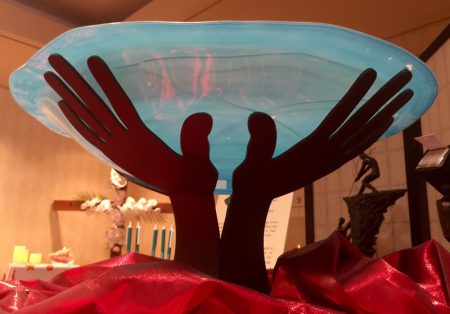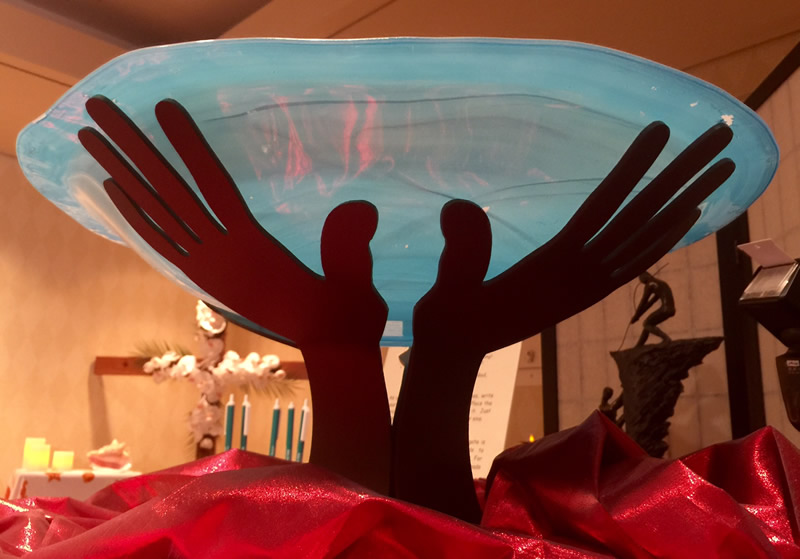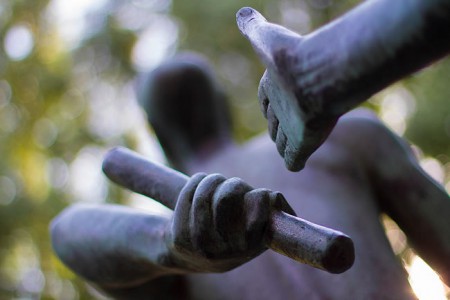Jurisdictional Conference is a time when new things can happen, and I’m excited for what can come next in 2022 for the Western Jurisdiction.

Many “Firsts” in Jurisdictional Leadership
In 2016, a clergyperson in my annual conference (I’ve now forgotten who?) wrote about the many “firsts” in the West that came about at our Jurisdictional Conferences that elect bishops and provide jurisdictional leadership.
- In 1972 Wilbur Won Yan Choy was elected by the Western Jurisdiction as the first Asian-American bishop in The United Methodist Church.
- In 1984 the Western Jurisdiction elected the first African-American female bishop of The United Methodist Church, Leontine Kelly; the first Hispanic-American Bishop, Elias Galvan; and the first Japanese-American Bishop, Roy Sano.
- In 2000 WJ was the first to have a Tongan-American (born in Hawaii) candidate for bishop, Eddie Kelemeni.
- In 2004 the WJ elected the first Latina Bishop, Minerva Carcaño, and was the first to have an openly LGBTQ+ candidate for bishop, Frank Wulf.
- Since 2008, WJ became the first jurisdiction in the US to not have a white male serving as an active bishop. From 2008-2016 the active bishops were 2 Japanese Ancestry males, 1 African-American male, 1 Latina, and 1 white female.
- In 2016 WJ elected the first openly LGBTQ+ bishop, Karen Oliveto, and had the first native Pacific-Islander candidate for bishop, Siosifa Hingano (Rev. Sifa). Also in 2016, WJ became the first jurisdiction to have more active female bishops (3) than male bishops (2).
What other “firsts” and celebrations would you add to the above?
The jurisdiction has led prophetically in these ways, but the institution has resisted innovative reforms in other ways.
Mixed Scorecard for 2022 Episcopal Reform
The 2020 COVID-19 pandemic gave pause to many efforts to reform United Methodism at the General Conference level as the global gathering was delayed, now to sometime in 2024. Focus shifted to the jurisdictional and annual conference level, especially in the Western Jurisdiction, where there were numerous efforts by the Team of 10 (which began just before the pandemic), First Elected delegates, the Mission Cabinet, and annual conference gatherings to effect change. These resulted in So Many Zoom Calls, called Jurisdictional conversations, Jurisdictional Work Groups, and a March 2022 gathering of jurisdictional leadership. At each one, creative ideas came up, and efforts began to create change.
Of all of these efforts, I hesitate to say that the main enduring reforms were a new process for nominating and electing bishops in the Western Jurisdiction (which came from that March 2022 gathering of jurisdictional leadership), and a reform of the Western Jurisdiction Leadership Team to be less bishop-centric (which came out of a team from the Western Methodist Justice Movement). Both of these will be voted on at the Jurisdictional Conference in November 2022, along with other efforts and resolutions. These are great efforts and speak to our ability to create innovative change within our institutional structure.
But I lament because there were numerous ideas and directions about leadership that came from these conversations, but they diffused like a gas in a large room as they had no container to concentrate their energies. Reviewing my notes from these meetings for this blog post, I was struck by the creativity and clear energy behind many proposals that showed up in multiple conversations from multiple people—proposals that now won’t be voted on by the people at Jurisdictional Conference.
How do you think we could help shepherd good ideas to the channels that can effect change?

Two Episcopal Reforms that Fizzled…For Now.
Since 2019, various groups and efforts in the Greater Northwest area of the Western Jurisdiction have studied the role of the episcopacy, asking if there is a better way to utilize episcopal leadership on specialties other than general superintendency. While most proposals deal in General Conference legislation, we found that the Western Jurisdiction can make these decisions ourselves with faithful leadership, committed study, and bold revisioning of who the jurisdiction can be, so that we can accomplish our mission.
Unfortunately, after the March 2022 final gathering before Jurisdictional Conferences, the remaining efforts were left undone–even though this interim time would have been perfect for such reforms. Ideas need championing teams for the work, and if a team doesn’t take on the work of the people, it is left undone.
Even when annual conferences call for the work, it doesn’t always happen. The Oregon-Idaho conference called for the jurisdiction to provide leadership for two efforts, but given Annual Conferences cannot direct the jurisdiction, these efforts remain undone. Here are two examples (found on this page: AR5 and AR6, both of which passed in 2022).
- Call for Episcopal Study Committee to be created to continue the work of Western Jurisdictional workgroups, draw in other inputs from across the connection, and bring forth one or more proposals to the next Western Jurisdictional Conference to include:
- The role of the episcopacy and whether bishops are appointed primarily to geographic areas, or primarily to functional specialties for the entire Western Jurisdiction;
- Any jurisdictional or annual conference administrative structures or positions that can assist in fulfilling that role;
- The values that govern such decisions now and in the future.
- Call for Transitional Class of Bishops: A transitional class of bishops would allow 6 years for the Western Jurisdiction to study and re-align its episcopal leadership needs to the changing realities of the Jurisdiction following the covid-19 pandemic and the splintering of Methodism. Everyone said it couldn’t be done but a few folks helped find a way in our polity to elect and then hold to their promise a transitional class of bishops.
- Unfortunately, to my knowledge, few if any delegations have asked this question about serving as a transitional team while interviewing candidates in 2022.
Full disclosure: I wrote the original resolutions and will continue to shepherd the ideas in the new leadership structure—and I welcome partners to share the work.
I hope the work continues on these reforms and I’m excited to talk about how to create channels for similar ideas to become innovative proposals. If you like these ideas, what could be the next step to move them forward now at this late a date?
A New Container for Reform
I hope that the 2022 Jurisdictional Conference sees the opportunities and continues the conversations on things that matter, but now with a new container for reform.
We will vote on a new Jurisdictional Leadership Team, created by an effort from members of the Western Methodist Justice Movement, that replaces our current Mission Cabinet. While many of the same representative positions are at the table, it includes more at-large elected membership (you can read the details and changes starting on page 16 of the Pre-Conference packet) and, most importantly, moves bishops away from voting on their own episcopal reforms, and their positional staff away from the table.
Full Disclosure: I’m on the Rules Committee (shocker, I know) for the Jurisdiction, so I contributed to this effort in that capacity.
We need vessels and containers to champion reform because institutions, even jurisdictional or annual conference level, need to be structured to encourage reform. Author Brian McLaren says the best institutions absorb the progress and advancements of the movements within it:
Effective institutions consolidate the gains of a movement.
Brilliant ones keep the movement alive.
I have said before the West is the cutting edge of United Methodism. How will we know if we still are the cutting edge if our movements are not given (and utilize!) the channels to flourish?
Setting a vision for 2024
With a new leadership team that is more representative than positional, new bishops who hopefully continue to be about missions more than maintenance, and a clearly defined process that can be a clearinghouse for implementing reforms from the grassroots, I’m ever-hopeful about our United Methodist future in the Western Jurisdiction.
As The United Methodist Church is beset by anti-institutional movements that are drawing churches out of the connection, the Church would do well to absorb the gains of the movements that love our connection–and want it to be better.
Blessings, and see you at Jurisdictional Conference. ~Jeremy Smith
Your Turn
Thoughts?
Thanks for reading, commenting, subscribing, and sharing on social media.




The West is a apostate church led by apostate Bishop. Please repent before judgement comes
God will not be mocked
“Sustaining and prophetic” are aspirational, at best, like belief in human progress. More likely, this is the scheming of golden pheasants who are scrambling to preserve what’s left of their nests. I’m not cynical in saying this, just disbelieving the ratiocinations that circle round these terms. I think the proponents do believe their own prophecies.